Sinatra! Deep Cuts: Another Ride on the CAROUSEL(part 4 of probably 4)
Blowing High and Low: that thorny issue of CinemaScope55
The Story So Far:
Part Three - Rodgers & Hammerstein Weigh in
As we’ve seen, the only participant in the filming of Carousel to talk extensively about what happened was producer and screenwriter Henry Ephron (yes, the father of Nora) in his 1977 memoir, the full title of which is We Thought We Could Do Anything: The Life of Screenwriters Phoebe and Henry Ephron. Like any eyewitness, much of what Ephron tells us is highly credible but there are a few points worth calling into question
We know that Sinatra was totally thrilled to make the movie, and had campaigned enthusiastically to land the part. Not only that, Sinatra’s agent Bert Allenberg at William Morris, had landed him an almost ludicrously lucrative contract. Just two years earlier, he had appeared in From Here to Eternity for a measly $8,000, a mere pittance that he agreed to accept to sweeten the deal for Columbia Pictures mogul Harry Cohn because he knew that this movie could (and did) resuscitate his fading career. By 1954, post-Oscar, when he signed to do Guys and Dolls for Goldwyn, his fee was $85,000, more than ten times what he received for Eternity. And then, for Carousel, Fox agreed to pay him almost twice that: $150,000 - which comes out to about $1.7 million in 2023 dollars (adjusted for inflation.) (Numbers from Ezra Goodman, reporting for Time magazine.)
As we’ve seen, in August 1955, Sinatra pre-recorded at least three Carousel songs on the 20th Century Fox soundstage in Hollywood with musical director Alfred Newman conducting. But then, at the moment when the cast and crew is setting up at Boothbay Harbor, Maine, Sinatra already has a few reservations.
Ephron:
There are no secrets in Hollywood. I first heard it from Lionel Newman, Alfred's brother, who was himself a gifted musician, and also a man who knew everything before anyone else. Musicians always do. I'll never know why unless it's that they have no reverence, and the union gives them ten minutes every hour to rest and exchange stories.
"Frank's unhappy," said Lionel. "With Henry King?" "No, himself. He thinks he's bad casting for the picture." I knew two other men who agreed with him: R. Rodgers and O. Hammerstein.
We don’t know where either Lionel Newman or Ephron got this last idea from. Ephron doesn’t mention speaking to Rodgers or Hammerstein personally, and, as we know from Hammerstein’s letters to executive producer Darryl F. Zanuck, the two creators were very much in favor of Sinatra being in their movie.
Ephron continues:
I had my own underground, but I wasn't sharing that knowledge with anybody. "Where did you hear that, Lionel?" "You know that bar on La Cienaga?" [...] "What about it?" "Frank turns up every night at midnight, and keeps asking the bartender, 'Do you think I'm right for the part? Isn't Shirley Jones too big for me . . . ?' and a lot more crap like that." I put this story in the back of my mind and kept it to myself.
Now here’s another crucial point; Ephron and the whole magilla are already in Maine, waiting for Sinatra, and this very moment, they hear from Zanuck and, more importantly, from Spyros Skouras, President of 20th Century Fox.
Then we got a message from Skouras and Zanuck. We were to make two Carousels — one on thirty-five millimeter film, which was CinemaScope, and another in fifty-five millimeter that Skouras planned to road show. The thirty-five would be played in the neighborhood houses.
Notably, Ephron objects - he doesn’t see the point of the “55” version:
[Henry] King, Phoebe and I looked at the demonstration reels of both films. The fifty-five certainly had better definition and more depth than the thirty-five. [But] we were all sure that only professionals could see the difference. If the story worked, the audience would be so wrapped up in it that they would never notice the difference. Whatever it was supposed to be, fifty-five wasn't any asset to the film.
Ephron reaches out to Zanuck and makes the point that the 55 format will not increase anyone’s enjoyment of the film. Unfortunately, Skouras is convinced that for novelty gimmick value alone, the new format will result in a substantially higher box office take.
I put in a call to the studio and the studio operator found Zanuck for me. After relating the conversation, I said, "Do we need the fifty-five camera?" Zanuck said, "Skouras said it will add three million to the gross." "What do you think?" I said. "Look, Henry, I just make the pictures. He distributes them." "That's too bad," I said. "He doesn't know his ass from third base." "About theaters, he does," said Zanuck.
So now, Sinatra arrives at the location. We know that he’s testy and antsy, mainly because he doesn’t think he’s wanted by Dick and Oscar. Ephron also tells us that, “He hated the flight from L.A. He threw up on the small plane from New York to Portland, and he got sick again on the fifty mile drive from Portland.”
And the news that they’re going to have to shoot the picture twice is also a legitimate concern for him. This is important: when he signed his contract with Zanuck, the decision had not yet been made to do the whole Cinemascope55 bit. You can hardly blame him for being upset - making a major motion picture is hard enough, even if you only have to do it once. Now Sinatra’s buttons have been pressed and he is highly defensive, even downright hostile.
Ephron:
"Can you work tomorrow?" I asked.
"I don't know about tomorrow or the day after or the day after that."
I wanted to say, "What the hell are you doing here?" Instead, I tried to play it cool and said, "Shall I get a doctor for you?"
"Doctor — who the hell is talking about a doctor? I'm talking about the two cameras. What's this crap I've been hearing? If I make two pictures, do I get double salary?"
Laboriously, I explained the Skouras dream — road show the 55 and neighborhood the 35.
"Do both cameras shoot at the same time?" "No. Unfortunately, they need different lighting, or something like that." "Well, forget it, kid. It's me or the cameras. One of us has got to go."
I said, "Frank, for Christ's sake — "
"Listen, Henry. You know me. You've heard me say it — it's been printed a thousand times — I've only got one good take in me."
Afterwards I thought to myself, "That's a great epitaph: Here Lies Frank Sinatra. He Only Had One Good Take In Him." But what I said was, "We'll save that one good take for the road show. Your call tomorrow is at nine — ten on the set. We're shooting the scene between you and Julie where she introduces you to her aunt."
"I'll stay up all night memorizing it," he said.
"Can I come down and talk to you?" "What the fuck is there to talk about?"
The charm boy, the darling of millions, hung up.
The main point is that Sinatra is now officially being commanded to do twice as much work as he had contractually agreed to do, and it’s in an area where he is particularly sensitive. (Still I wonder, since he was being paid almost twice as much money for Carousel as he had been for Guys And Dolls, it could have rationalized being asked to do twice as much work.)
I happen to think the line - "Listen, Henry. You know me. You've heard me say it — it's been printed a thousand times — I've only got one good take in me." - is not something Sinatra would have actually said in 1955. He was hot off From Here to Eternity and the Oscar; this isn’t something anybody was saying at the time, but rather something that Ephron probably injected 20 years later, by which point it really had been printed a thousand times.
As previously mentioned, I don’t think Shirley Jones was paying that much attention, and she has graciously offered different stories when asked at different times. When I asked her about 15 years ago, she said simply, “I really don’t know.” That was the best answer she could have possibly given. I would bet, however, that other interviews have pressed her to come up with an answer. At other times she’s mentioned the Cinemascope55 issue, and she’s said that Sinatra’s wife, Ava Gardner, was threatening, essentially, to screw around on him (not Ms. Jones’s actual words!) unless he dropped everything to be with her.
As passionate as Sinatra was, I don’t think that would have been enough to get him to give up a part that he really wanted to play. Sinatra and Gardner were always challenging, teasing, torturing, and threatening each other in this fashion. (And, after all, he had 150,000 reasons to stay on the set and make the movie.) There was never one point in the Frank-Ava relationship when it was anything other than tumultuous (Why this movie? Why wouldn’t Ava demand he storm off the set of Guys and Dolls or The Tender Trap, two other pictures he was filming in 1955?) It was too hot, but contrary to Cole Porter, it never did cool down, even after they were long divorced.
In any case, Sinatra storms off the set, and that is that.
Punchline - and after all that… (from Ephron). At the moment when the finished feature is about to be released:
[The great cameraman Leon] Shamroy, as usual, was the first to know. He came to King's office when Phoebe and I were visiting.
"Haven't you heard?" he said.
"What haven't I heard?"
"They're releasing Carousel in thirty-five millimeter only, not fifty-five."
"What are you talking about?" I yelled.
"The theaters would have to put in new equipment to run the fifty-five. The equipment is expensive and the theaters refuse to do it."
I cursed Skouras, his ancestors and his descendants. We could have had Sinatra, we could have shot nearly all the picture in Maine. We could have saved almost a million dollars, we would have brought the picture in at a price that would have astonished everybody. What did Skouras have that got him where he was? A great business mind. He hardly proved it in his next move. A year or two later he sold half the studio backlot, which was the size of a small city, for $42 million, and then turned around and sank all the money into Cleopatra, one of the financial disasters of all time.
He became the bane of my life.
What Ephron apparently does not tell us is this: did he actually shoot and complete two full versions? Is there a Cinemascope55 edition still lying in the vaults at 20th Century Fox? (That would mean that Disney currently owns the rights to it. ) It seems hard to believe that if they had gone to all that trouble, blew off Sinatra and spent another million, that they would have released or shown this version somewhere, or done something with it over the last 65 years. It somehow seems like a stretch that this “alternative film,” which cost the studio all that money to make, could have just disappeared.
# # #
Update - in talking about “You’ll Never Walk Alone” yesterday, I forgot to mention (and Michael Portantiere reminded me) that the Billy Bigelow character does not sing this in the show, and it would have been a stretch for him to sing it in the movie. However, the discography does list a new Sinatra recording made for the film on August 17; unless it actually turns up, we can never know for sure.
And possibly relevant: the filmmakers worked Sinatra / Bigelow into at least one other number that he does not sing in the show, “Blow High, Blow Low.” In the musical, “Jigger Crain,” Bigelow’s sidekick, sings this mock-sea chanty with a male chorus. Michael suggests that, “In the original stage score of Carousel, I believe Billy sings one verse of "Blow High, Blow Low," though of course it's mostly Jigger's song.” I have yet to find any cast album where Billy is heard on “Blow High.” But, in The Complete Lyrics of Oscar Hammerstein, there are indeed several choruses designated for Billy. (The full lyrics are also here on R&H.com.)
Either Ephron or conductor Alfred Newman decided that Bigelow would sing it in this version along with Cameron Mitchell as Jigger. Chuck Granata, God Bless him, recently found this recording, and has already shared it with the world via KSDS.
This is a special edit that Chuck prepared, as he explains: “In editing the original recording, I’ve sequenced ‘Blow High, Blow Low’ in the production recording order, layer upon layer, so that you can hear how a soundtrack recording is built on the film recording soundstage.”
The “final” version here, which starts at about 3:15, indicates how Newman (“Newman!) intended the song to be heard in the finished film. Note that the chorus that Hammerstein originally designated for Billy, which begins “It’s wonderful just to feel / Your hands upon a wheel,” is not heard at all here, and the chorus that Sinatra does sing (“A-rockin’ upon the sea…”) was originally intended for Jigger.
This is what you’ll hear:
Orchestral intro (30 seconds)
Jigger (Cameron Mitchell): (spoken) Yeah! Landlubbers!
Jigger:
The people who live on land
Are hard to understand—
When you’re lookin’ for fun they clap you into jail!
So I’m shippin’ off to sea,
Where life is gay and free,
And a feller can flip
A hook in the hip of a whale.
Men:
Blow high, blow low!
A-whalin’ we will go!
We’ll go a-whalin’, a-sailin’ away.
Away we’ll go,
Blow me high and low!
For many and many a long, long day.
For many and many a long, long day!
Billy (Sinatra):
A-rockin’ upon the sea,
Your boat will seem to be
Like a dear little baby in her bassinet,
For she hasn’t learned to walk,
And she hasn’t learned to talk,
And her little behind
Is kind of inclined to be wet!
Billy (Sinatra) & Men:
Blow high, blow low!
A-whalin’ we will go!
We’ll go a-whalin’, a-sailin’ away,
Away we’ll go,
Blow me high and low!
For many and many a long, long day!
For many and many a long, long day!
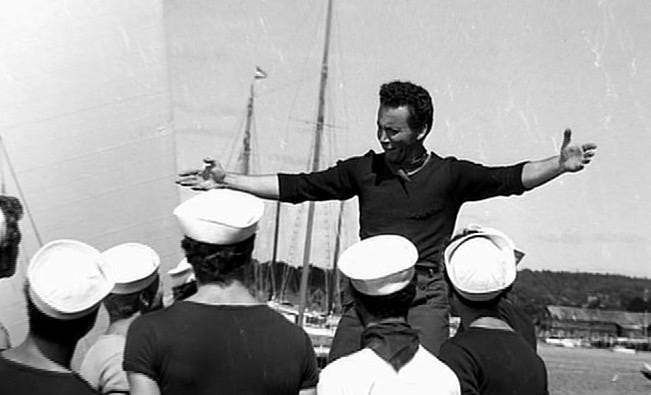
And another punchline: “Blow High, Blow Low” was recorded for the film, but not used in the final released version, not sung by Jigger, Billy, or anybody. The audio is included on the soundtrack album and as a bonus item on the soundtrack LP and CD. That unused but released track is only 86 seconds, whereas Chuck’s edit is almost two minutes long. At 0:45 in the released version, someone sings the “A-rockin’ upon the sea” chorus; I’m fairly certain it’s Mitchell again, but I’m curious if anybody feels differently, that it might be someone else. (Mitchell does sing the first chorus, “the people who live on land…’)
Once again, thanks Chuck!
I’ll leave you with this charming postscript: Sinatra and Shirey Jones on The Frank Sinatra Show, ABC-TV, February 14, 1958. Alas, they don’t do the complete bench scene, but they do sing a charming, if more conventionally staged version of “If I Loved You,” wonderfully arranged (apparently) by the great Nelson Riddle.
One more update: after yesterday’s post, detailing Rodgers and Hammerstein’s feelings about Sinatra and quoting from the wonderful new book, The Letters of Oscar Hammerstein II, I was excited to hear from the author himself, Mark Eden Horowitz. Mark provided me with another Hammerstein letter, not in the book, wherein the great showman mentions Sinatra, but not in connection to Carousel.
In January 1955, Hammerstein is thinking about the casting of the forthcoming Pipe Dream, and compiles a list of possible leading men (in the role of “Doc”) and Sinatra is there, along with such musical comedy Stalwarts as Russell Nype, Earl Wrightson, Ray Middleton, and others. We know that Sinatra deliberately avoided doing a Broadway show, in which he’d be expected to give “good takes” for eight shows a week, but it would have been a blast to hear him sing “All at Once You Love Her.”
This may actually be it regarding Sinatra and Carousel, though new info keeps popping up. Happy New Year Everybody. As my late father used to say, "Have a Merry Christmas and a Harry Connicka!"
Very Special thanks to the fabulous Ms. Elizabeth Zimmer, for expert proofreading of this page, and scanning for typos, mistakes, and other assorted boo-boos!
Sing! Sing! Sing! : My tagline is, “Celebrating the great jazz - and jazz-adjacent - singers, as well as the composers, lyricists, arrangers, soloists, and sidemen, who help to make them great.”
A production of KSDS heard Saturdays at 10:00 AM Pacific; 1:00PM Eastern.
To listen to KSDS via the internet (current and recent shows are available for streaming.) click here.
The whole series is also listenable on Podbean.com, click here.
SPECIAL ENCORE PERFORMANCES!
December 31: The Early Years 1935-42 hosted by Will Friedwald
January 1: The Columbia Years 1943-’49 hosted by Ken Poston
January 2: The Radio Years: hosted by Chuck Granata
January 3: The Fall and Rise (1950-’54) hosted by Will Friedwald
January 4: Frank and Nelson hosted by Will Friedwald
January 5: The Capitol Years hosted by Loren Schoenberg
January 6: Bonus! Sing! Sing! Sing! Some Frank Conversation with Adam Gopnik
January 7: The Movies: Hosted by Chuck Granata
January 8: The Early Reprise Years 1960-'65 hosted by Loren Schoenberg
January 9:The Concert Years hosted by Ken Poston
January 10: The Rat Pack hosted by Ken Poston
January 11: Inside the Studio hosted by Chuck Granata
January 12: Bonus! In the Wee Small Hours with AJ Lambert (Sinatra’s granddaughter)
January 13: 1965-1974 The Main Event hosted by Will Friedwald
SLOUCHING TOWARDS BIRDLAND is a subStack newsletter by Will Friedwald. The best way to support my work is with a paid subscription, for which I am asking either $5 a month or $50 per year. Thank you for considering. (Thanks as always to Beth Naji & Arlen Schumer for special graphics.) Word up, peace out, go forth and sin no more! (And always remember: “A man is born, but he’s no good no how, without a song.”)
Note to friends: a lot of you respond to my SubStack posts here directly to me via eMail. It’s actually a lot more beneficial to me if you go to the SubStack web page and put your responses down as a “comment.” This helps me “drive traffic” and all that other social media stuff. If you look a tiny bit down from this text, you will see three buttons, one of which is “comment.” Just hit that one, hey. Thanks!



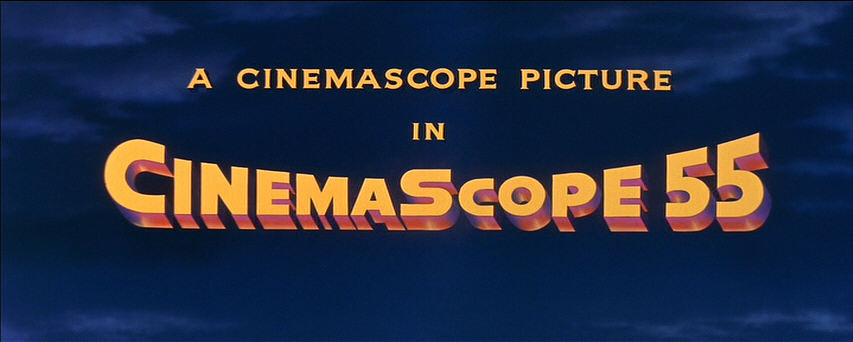
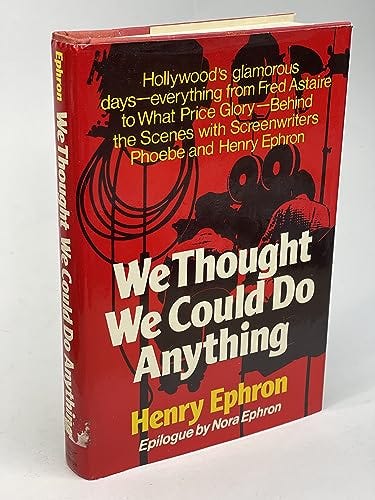
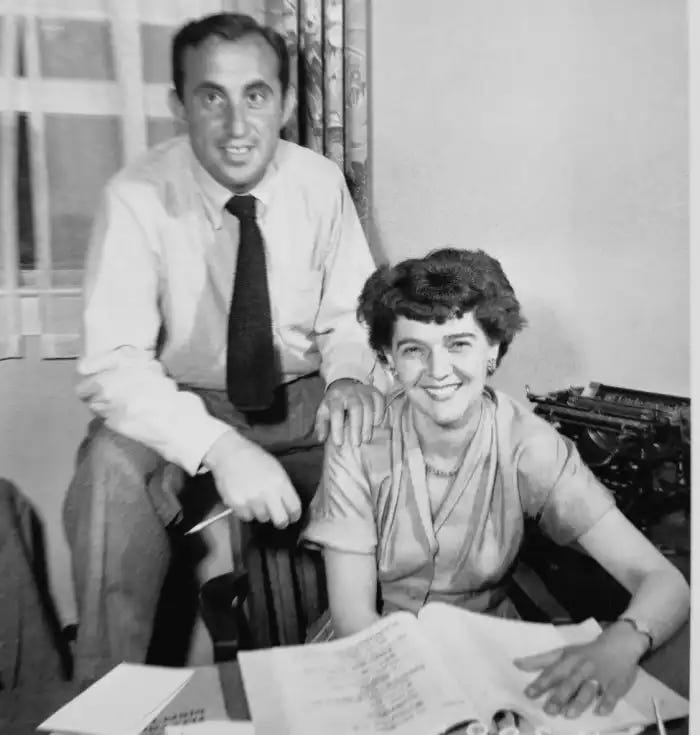
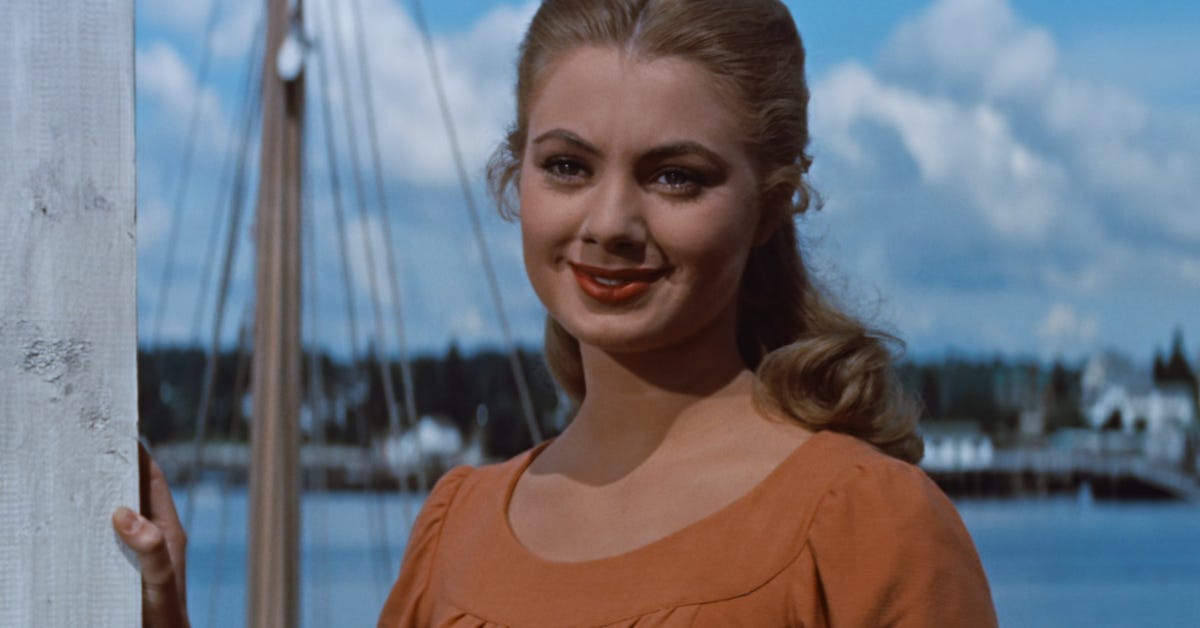
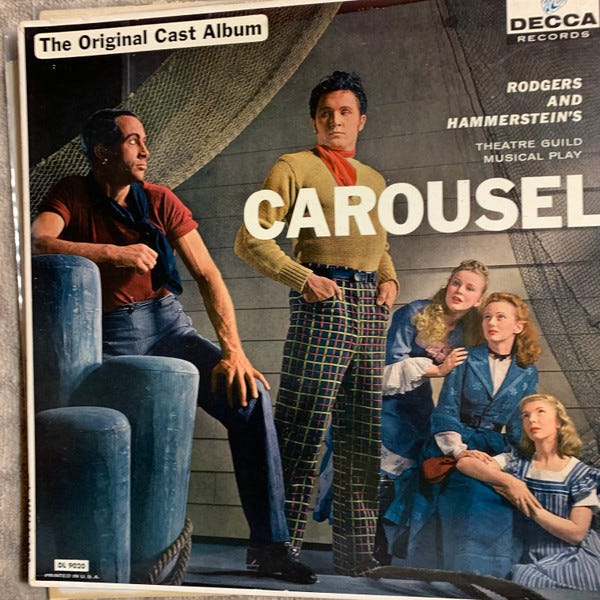
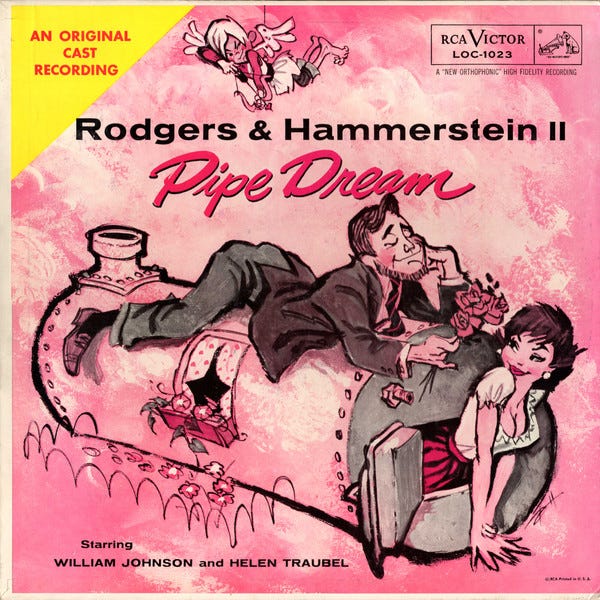

Regarding the Ava theory, one difference between Carousel vs. The Tender Trap/Guys and Dolls is that the latter films were shot on a Hollywood soundstage (i.e., near Ava), while location shooting for Carousel was more than 3000 miles away in Boothbay, Maine.
I was 12 hears old in 1955 but I vaguely remember reading at the time (or a few years later, but long before the publication of Ephron's book) that Sinatra quit the film when he was told they were shooting each scene twice because of the two film formats.